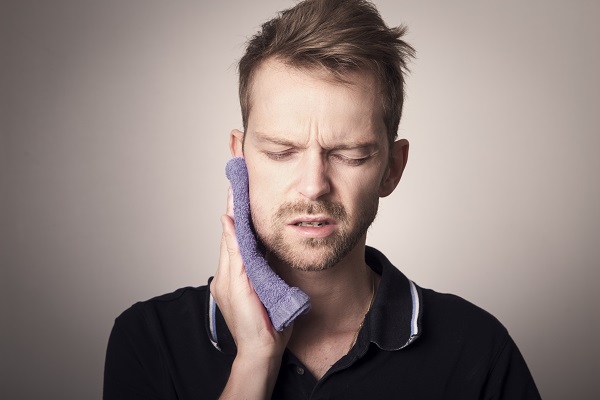Visiting an Emergency Dentist for a Cracked Tooth

Wondering whether you should see an emergency dentist for a cracked tooth? Read on to find out. A cracked tooth can lead to discomfort and become a frightening situation, especially if the crack happens suddenly as a result of dental trauma. When this occurs, it is important to contact an emergency dentist to determine if a prompt visit is necessary to avoid more serious concerns from developing.
What to know about seeing an emergency dentist for a cracked tooth
This article provides an overview of how an emergency dentist can treat a cracked tooth, in what situations you should seek an emergency dentist, and much more. This information may help you decide whether emergency dentistry is right for you or if your specific concern can wait for a more opportune time.
What is an emergency dentist?
An emergency dentist is a dental professional that offers prompt dental visits for patients with dental emergencies. Emergency dentists often practice as general dentists as well, although they may provide more emergency dental services to assist patients that have endured a blow to the mouth, developed an oral infection, or are experiencing severe oral discomfort.
How can an emergency dentist treat a cracked tooth?
A dentist can repair a cracked tooth in a variety of ways. The recommended treatment solution depends largely on the location of the crack, the location of the tooth that was cracked, the severity of the crack, and the cause. The first thing an emergency dentist will likely do is treat the initial discomfort, which may include tooth pain, gum discomfort, and tooth sensitivity. The most notable treatment options for a cracked tooth from an emergency dentist include:
- A dental crown
- Dental bonding
- Dental veneer
- Onlay/Inlay
- Dental filling
The dentist can explain the pros and cons of each available treatment option during the visit.
When should I see an emergency dentist for a cracked tooth?
All instances of a cracked tooth require treatment from a dentist. If the symptoms are noticeable (e.g., chronic tooth pain and sensitivity), then emergency dentistry is strongly recommended. It is also important to visit a dentist if the long-term health of the tooth is in jeopardy, such as if the tooth was loose in the socket or there was significant damage to the gums or jawbone.
What are the risks of not seeking emergency dentistry for a cracked tooth?
A cracked tooth increases the risk of tooth infection and gum damage and may affect surrounding teeth. The longer the patient waits for treatment after a cracked tooth the more extensive treatment is likely to be. For example, while simply disinfecting the tooth and applying a dental crown may be enough if prompt care is provided, a cracked tooth that becomes infected may require a root canal procedure or even the extraction of the tooth.
What happens during an emergency dentistry visit for a cracked tooth?
The emergency dentist may begin with an assessment of the tooth, along with a discussion of your symptoms. This gives them a sense of the severity of the damage and the best course of treatment. The first goal of the emergency dentist is to alleviate the initial discomforting symptoms, such as swollen gums, tooth pain, etc.
They may also perform a restorative procedure on the first visit. This could be in the form of a dental crown, dental veneer, dental bonding, or various other types of restorations. The exact type of restoration depends on the severity and location of the cracked tooth. The dentist may also provide advice on ways how to prevent a cracked tooth in the future.
What can I expect after cracked tooth treatment from an emergency dentist?
The first visit with an emergency dentist is typically designed to address the initial symptoms and help stabilize the tooth. A follow-up visit may be necessary depending on the type of treatment that is chosen. For example, a second visit is generally required for dental crown restoration as the crown must be customized in a laboratory.
Do you need treatment for a cracked tooth?
Our dentist practice offers emergency dental services to treat cracked teeth, chipped teeth, tooth infections, and much more. If you have endured dental trauma or have an oral health concern, then contact our clinic right away to find out how we can help. We take pride in assisting patients in emergency situations, and we look forward to speaking with you soon.
Request an appointment here: https://www.charlottemidtowndentistry.com or call Midtown General & Cosmetic Dentistry at (704) 307-4525 for an appointment in our Charlotte office.
Check out what others are saying about our dental services on Yelp: Emergency Dentist in Charlotte, NC.
Related Posts
Minor dental pain is rarely a concern. However, severe tooth or gum pain may require treatment from an emergency dentist. In many situations, this type of dental discomfort can prevent a person from performing essential everyday tasks. It is often caused by cavities, which can worsen or cause complications if left untreated.There is a reason…
A cavity indicates that your tooth is decayed to some extent and requires a dental filling. This tooth decay will spread even further if it is not addressed by a dental professional. Cavities are treated by filling them with one of the dental materials designed to treat cavities, which prevents further tooth deterioration. Maintaining the…
When your general dentist says you need an oral sedative, you might have questions. There are many reasons why you might want or need an oral sedative. You may experience a lot of anxiety, or you may need a procedure that can cause discomfort. General dentists use several different kinds of oral sedatives to help…
Choosing a new dentist can take some research. Beyond routine cleanings and checkups, a trusted dentist serves as a long-term partner in maintaining not only the appearance of the smile but also the function and health of teeth and gums. Once basic factors like location and insurance are addressed, deeper qualities begin to define what…


